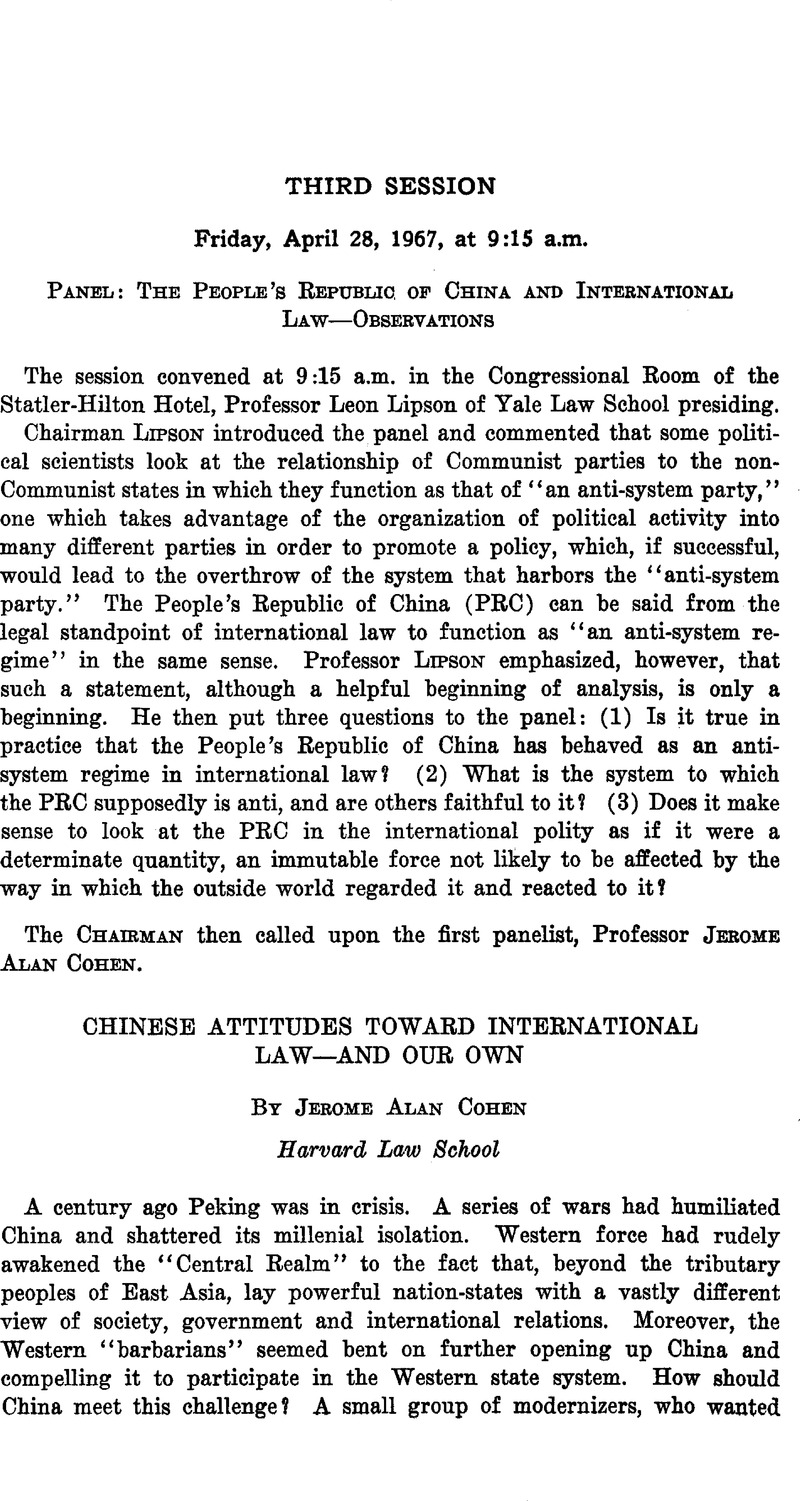Published online by Cambridge University Press: 27 February 2017

1 For the above quotations and details of this fascinating story, see Hsu, China's Entry into the Family of Nations, Chs. 8, 9 (1960).
2 See, e.g.,Fairbank, China: The People's Middle Kingdom and The USA (1967); and Schwartz, “The Maoist Image of World Order,” 21 Journal of International Affairs 92 (1967).
3 See Mancall, ‘ ‘ The Persistence of Tradition in Chinese Foreign Policy,'’ The Annals, Sept. 1963, pp. 14, 23.
4 McDougal and Goodman, “Chinese Participation in the United Nations: The Legal Imperatives of a Negotiated Solution,” 60 A.J.I.L. 671, 698 (1966).
5 See Weng, “Communist China's Changing Attitudes toward the United Nations,” 20 International Organization 677 (1966).
6 The quotation is from McDougal and Goodman, loo. tit.note 4, at 711. On p. 713 they attribute Peking's refusal to co-operate in TJ.N. disarmament efforts not to its exclusion from the U.N. but to its perception that the TT. S. manipulates the TJ.N. and has no intention of disarming.
7 Statement of President Truman, June 27, 1950, 23 Dept. of State Bulletin 5 (1950).
8 For authoritative interpretation of these events, see Tsou, America's Failure in China, 1941-1950, Ch. 13 (1963), and Whiting, China Crosses the Talu, Ch. 8 (1960).
9 31 Dept. of State Bulletin 856, 857 (1954).
10 New York Times, Feb. 6, 1957, p. 1, eol. 6.
11 See, e.g.,Wise and Boss, The Invisible Government 106-108 (1964); New York Times, Sept. 9, 1957, p. 7, cols. 5-6.
12 See MeDougal and Goodman, loo. tit.note 4, at 708.
13 Hid.at 717 (text and note 233).
14 See Schwartz, loe. cit.note 2, at 101.